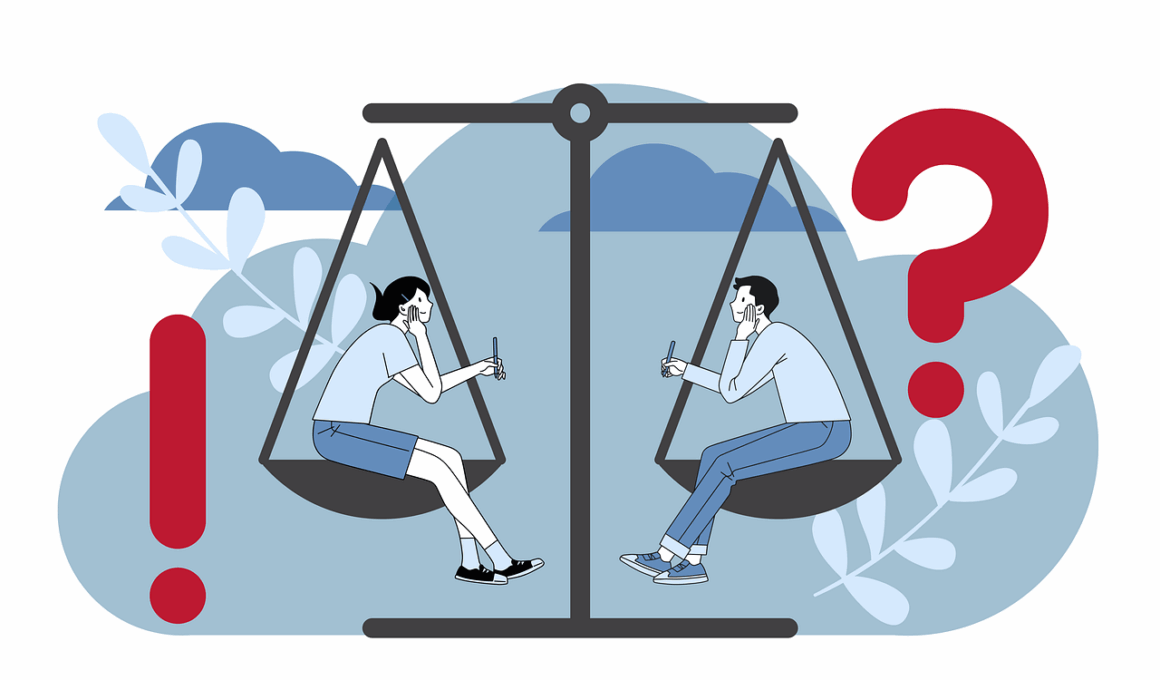Managing Conflicts of Interest in Crisis Management
Crisis management is a critical aspect of any organization, and it often requires navigating complex ethical dilemmas. One such dilemma arises from conflicts of interest, where personal or organizational motivations can compromise decision-making processes. When a crisis occurs, it is vital to identify and manage these conflicts to uphold ethical standards. Acknowledging conflicts of interest ensures that responses are unbiased, transparent, and focused on the wellbeing of all stakeholders involved. Organizations must establish clear policies to define what constitutes a conflict of interest. This includes financial interests, personal relationships, and professional entanglements that might influence judgment. Training and education are essential for creating awareness among employees about potential conflicts and their implications. Leaders must also lead by example, demonstrating integrity and ethical behavior during crises to foster a culture of transparency. Additionally, employing an ethics committee can provide guidance during challenging situations. Organizations should engage in open communication, allowing employees to report conflicts without fear of backlash. Ultimately, effective crisis management balances the needs of stakeholders while addressing conflicts of interest directly and thoughtfully.
Moreover, identifying conflicts of interest in crisis situations requires a proactive approach. Organizations should regularly review their policies and conduct assessments to pinpoint potential areas of concern. Ethical frameworks help guide decision-making processes during a crisis, ensuring that leaders remain aligned with the organization’s values. Involving external auditors or third-party advisors can enhance objectivity when managing conflicts. This approach helps in providing a fresh perspective and ensures that decisions are made based on ethical considerations rather than personal interests. Organizations can employ various strategies to mitigate the impact of conflicts of interest. For instance, establishing a clear protocol for reporting and resolving conflicts encourages employees to act ethically. Transparency plays a crucial role in maintaining trust among stakeholders. When stakeholders believe that organizations act ethically, their confidence in the organization strengthens, particularly during crises. Consequently, transparent communication about decision-making processes can alleviate concerns about conflicts. By fostering an environment of accountability, organizations can navigate crises more effectively while maintaining ethical integrity and upholding their reputation in the community.
The Role of Leadership in Ethical Crisis Management
Leadership plays a pivotal role in managing conflicts of interest during crises. Leaders must prioritize ethical considerations, recognizing their impact on the organizational culture. They should strive to embody the values that the organization stands for, serving as role models for employees. When leaders demonstrate a commitment to ethics and integrity, it encourages a collective response to conflicts of interest across the organization. Establishing a culture of ethical awareness can significantly influence behavior during crises. Organizations should implement regular training programs to reinforce ethical standards. These programs should include discussions about real-life examples of crises where conflicts of interest have surfaced. By encouraging employees to share their experiences and ethical dilemmas, organizations can learn valuable lessons. Consideration of diverse perspectives can enrich decision-making processes and promote better outcomes during crises. Furthermore, leadership must ensure that the organization has the necessary resources to manage conflicts effectively. This includes access to legal counsel and ethics advisors when needed. By being prepared and informed, leaders navigate crises with a greater sense of confidence and accountability, ultimately safeguarding the organization’s reputation and stakeholder trust.
Additionally, maintaining an open dialogue with stakeholders during a crisis is essential for managing conflicts of interest. Organizations must communicate transparently about their decision-making processes and the steps taken to address conflicts. Stakeholders should feel empowered to voice their concerns, fostering a collaborative environment. Transparency reduces the likelihood of misinformation and speculation, which can exacerbate crises. Furthermore, organizations can utilize social media and other communication platforms to engage with stakeholders in real time. This engagement allows for feedback, which can inform the organization’s response. Rapidly addressing conflicts of interest through communication helps mitigate potential damage to the organization’s reputation. Organizations should also be prepared to make difficult decisions when conflicts arise. Sometimes, putting the organization’s ethical standards first may involve making choices that do not align with personal or corporate interests. It is crucial for leaders to remind themselves and their teams of the long-term benefits of ethical decision-making. Even if it may seem challenging in the short term, prioritizing ethical considerations will pay off by building lasting relationships and trust with stakeholders.
Creating an Ethical Framework for Crisis Situations
To effectively manage conflicts of interest, organizations must develop a robust ethical framework. This framework serves as a guiding principle for employees when navigating crises and addressing conflicts. Organizations should begin by outlining their core values and ethical guidelines that explicitly address potential conflicts of interest. These guidelines should be easily accessible and well-communicated to all employees. Establishing an ethics committee can help oversee compliance with these guidelines and advise on best practices. Education is another crucial element in creating an ethical framework. Regular workshops and training sessions can raise awareness about conflicts of interest, ethical obligations, and decision-making processes. Moreover, case studies can illustrate how to handle specific conflicts that may arise during crises. Organizations should also implement a reporting mechanism that ensures employees can confidentially disclose any conflicts. This empowers employees to take ownership of their ethical responsibilities. Finally, regular evaluations of the effectiveness of the ethical framework should be conducted. Feedback from employees and stakeholders can provide insight into potential improvements, ensuring the framework remains relevant and effective in managing conflicts of interest.
In crisis management, understanding the potential consequences of conflicts of interest is crucial for ethical decision-making. While sometimes conflicts may appear minor, they can escalate rapidly in high-pressure situations, leading to significant repercussions. If unaddressed, conflicts can damage relationships with stakeholders, leading to loss of trust and damage to the organization’s reputation. Organizations must proactively evaluate their responses to crises through a lens of ethical scrutiny. Evaluating past crises can provide valuable lessons on how conflicts of interest were handled and what could have been improved. Learning from these experiences allows organizations to prepare for future challenges. Engaging in post-crisis evaluations is essential to identify any overlooked conflicts and their consequences. Moreover, it helps in developing strategies for avoiding similar conflicts in future crises. Involving various stakeholders in these evaluations can provide diverse viewpoints and insights. This collaborative approach fosters a sense of ownership and shared responsibility among employees. Ultimately, organizations that embrace ethical decision-making will emerge from crises stronger, as they build a foundation of trust and integrity with stakeholders while effectively addressing conflicts of interest.
The Importance of Accountability and Transparency
Finally, accountability and transparency are paramount in ethical crisis management concerning conflicts of interest. Organizations that prioritize these values enhance their credibility and foster trust among stakeholders. Establishing mechanisms for accountability ensures that individuals are responsible for their actions during a crisis, particularly around managing conflicts. Transparent communication regarding how conflicts are addressed can significantly influence stakeholder perceptions. It demonstrates the organization’s commitment to ethical behavior and willingness to admit mistakes. When accountability is prioritized, it encourages employees to act ethically and to report any potential conflicts of interest. This creates a culture where ethical considerations are integral to decision-making. Additionally, regular audits and assessments of policies regarding conflicts of interest can enhance organizational accountability. Independent oversight functions, such as ethics committees, reinforce the organization’s commitment to transparency. Stakeholders, including employees, shareholders, and the community, often demand transparency during crises. When organizations actively communicate their conflict resolution processes, they can regain lost confidence and rebuild relationships. In conclusion, by embedding accountability and transparency in crisis management, organizations can navigate conflicts of interest while preserving their integrity and enhancing their reputation.
In conclusion, effectively managing conflicts of interest is integral to successful crisis management. Organizations must proactively identify potential conflicts and implement strategies to address them, ensuring that ethical principles guide their responses. Engaging in open communication, establishing an ethical framework, and emphasizing the importance of accountability and transparency are crucial steps. Leadership’s role cannot be overstated, as ethical behavior must start from the top down. By fostering a culture of integrity and openness, organizations build trust with stakeholders, which is essential in times of crisis. Moreover, continuous evaluation and learning from past experiences will only strengthen an organization’s ability to handle future crises. Ultimately, ethical crisis management not only mitigates risks but also contributes positively to an organization’s long-term success and reputation. Prioritizing ethics during challenges positions organizations for sustainable growth and positive relationships with stakeholders. As organizations navigate increasingly complex environments, they must remain vigilant about conflicts of interest. By doing so, they will better protect their interests while upholding the principles of justice and fairness. An organization’s commitment to managing conflicts of interest directly impacts its ability to thrive, especially in times of crisis.


